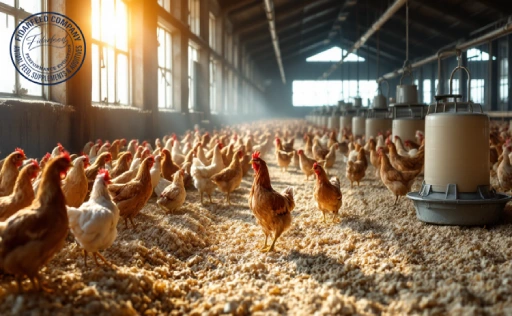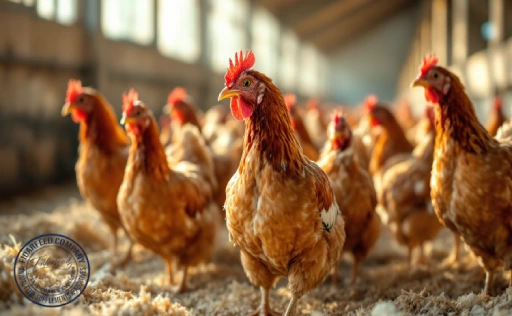Best Probiotics for Cats can make a significant difference in their health, especially when it comes to digestion, immunity, and overall well-being. Just like humans, cats rely on a balanced gut microbiome to stay healthy. However, stress, diet changes, illnesses, and antibiotics can disrupt this balance, leading to digestive issues and weakened immunity. This is where probiotics step in, helping to restore and maintain a healthy gut. Whether you’re an experienced cat breeder or new to feline care, understanding the role of probiotics is essential. Keep reading to learn how probiotics can benefit your cat and how to choose the best one.
Why Do Cats Need Probiotics?
A cat’s digestive system is home to billions of bacteria—both good and bad. When this delicate balance is disrupted, it can lead to issues like diarrhea, constipation, and weakened immunity. Probiotics introduce beneficial bacteria that support digestion and strengthen the immune system. They also help cats better absorb nutrients, ensuring they get the most from their food.
Learn more about: Synbiotic Supplement for Dogs and Cats
For breeders and those in the animal feed industry, probiotics play a key role in maintaining optimal health in breeding cats and kittens, reducing digestive upsets caused by dietary transitions or environmental stressors.
How Do Probiotics Benefit Cats?
Probiotics offer a wide range of benefits, including:
- Improved Digestion: They aid in breaking down food and absorbing nutrients, reducing bloating and gas.
- Stronger Immune System: A healthy gut microbiome enhances a cat’s ability to fight infections.
- Relief from Diarrhea and Constipation: Probiotics help regulate bowel movements, especially after antibiotic treatments.
Learn more about: Do Cats Get Vaccines? Essential Shots Every Cat Owner Should Know About
- Reduced Stress-Related Issues: Cats often experience digestive upset due to stress; probiotics can help restore balance.
- Better Skin and Coat Health: By reducing inflammation, probiotics contribute to shinier coats and healthier skin.
Signs Your Cat Might Need Probiotics
Not sure if your cat needs probiotics? Here are some common signs:
- Frequent diarrhea or constipation
- Vomiting or excessive hairballs
- Bad breath and bloating
Learn more about: Is Your Cat Constipated? Effective Home Remedies and When to See a Vet
- Food allergies or sensitivities
- Skin problems, itching, or excessive shedding
- Recent antibiotic use (which depletes good bacteria)
If you notice any of these issues, probiotics could be a simple yet effective solution to restore your cat’s gut health.
Types of Probiotics for Cats: Which One is Best?
Probiotics come in different forms, and choosing the right one depends on your cat’s needs:
- Natural Probiotics: Found in foods like plain yogurt, kefir, and fermented fish.
- Powdered Probiotics: Easy to mix into food; great for picky eaters.
Learn more about: Smart Shopping: The Probiotic Online Buyer’s Guide for Animal Feed Supplements
- Capsule or Tablet Probiotics: Can be given as a pill or opened and sprinkled on food.
- Probiotic-Infused Cat Food: Convenient for daily gut health maintenance.
The best probiotics contain strains like Lactobacillus acidophilus, Bifidobacterium, and Enterococcus, known for their digestive and immune-supporting benefits.
How to Choose the Best Probiotics for Cats
With so many options available, how do you pick the best probiotic? Here’s what to look for:
- Live and Active Cultures: Ensure the probiotic contains viable bacteria (measured in CFUs—colony-forming units).
- Multiple Strains: A variety of beneficial bacteria works better than a single strain.
Learn more about: Top Tips for Choosing the Best Animal Probiotic Supplier
- No Artificial Additives: Avoid fillers, artificial flavors, or preservatives.
- Vet-Approved and Clinically Tested: Choose brands backed by research and recommended by veterinarians.
How to Give Your Cat Probiotics Safely
Introducing probiotics to your cat’s diet should be done gradually:
- Start with a small dose and monitor for any changes.
- Mix powdered or capsule probiotics into wet food for easy consumption.
- If using a new brand, consult a veterinarian to ensure proper dosage.
- Be patient; results can take a few days to a few weeks.
Final Thoughts: Are Probiotics Worth It for Your Cat?
Probiotics are a valuable addition to your cat’s diet, supporting digestion, immunity, and overall health. Whether your cat struggles with digestive problems or you simply want to enhance their well-being, the right probiotic can make a noticeable difference. Always choose high-quality, vet-recommended probiotics and introduce them gradually. If you’re a breeder or involved in the animal feed industry, probiotics can be a game-changer in maintaining healthy, happy cats.
Have you tried probiotics for your cat? Share your experiences or ask any questions in the comments below!







